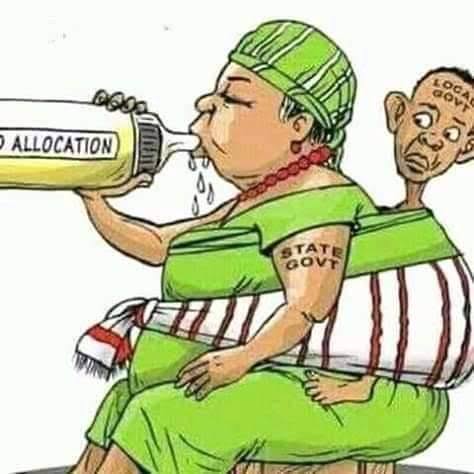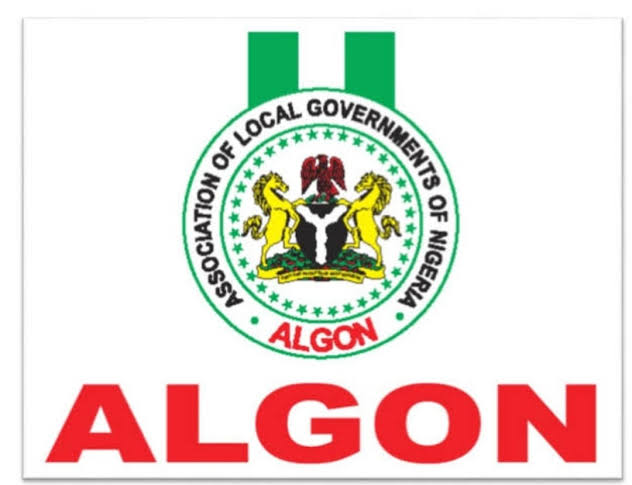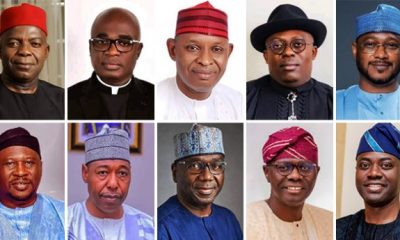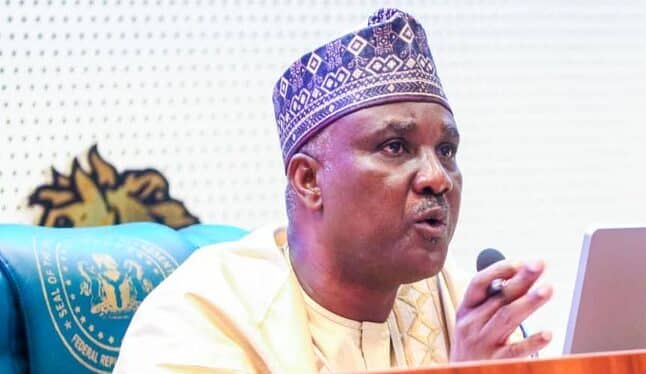Special Features
Who Will Save Local Governments From The Firm Grips Of State Governors?

Local government, often referred to as the third leg of the tripod in a federal system of government, holds a pivotal role in shaping the very fabric of societies. Beyond the grandeur of national policies and the governance of states, local governments stand as the closest interface between citizens and their governing bodies.
This tier of government is not merely administrative; it’s the bedrock of participatory democracy, where decisions directly affect the daily lives of individuals. From local infrastructure to community services, the significance of local government cannot be overstated.
EDITOR’S PICKS
-
Neglected Infrastructure and Disrupted Services: The Alarming State Of Nigerian Government Properties
-
Niger: Coup Leaders Reveal Fresh Plan Against President Bazoum
However, since local government administration in Nigeria came into existence over five decades ago, there has been a prevailing sense, especially among those at the local and rural levels, that the expected benefits of local self-government have not been realized.
Local Governments And The Hindrances Of Overbearing Governors
Local governments, originally designed to be the closest point of contact between the government and citizens, have somewhat become mere extensions of the governor’s office, eroding the principle of subsidiarity.
This is not unconnected with the undemocratic conduct of state governors, to whom local governments have become weeping children.
Several factors contribute to this influence. One key aspect is the financial dependence of local governments on state governments. In Nigeria, local governments rely heavily on federal allocations in joint accounts with states for funding, which makes them susceptible to the control of governors who control the distribution of these funds. This financial control allows governors to dictate the projects and initiatives that are undertaken at the local level, often in line with their political interests.
Additionally, the appointment and removal of local government officials are usually at the discretion of state governors. This power over appointments enables governors to install loyalists in key positions within local governments, thereby consolidating their influence and ensuring compliance with their directives. This practice has often led to a lack of qualified and capable personnel in local government administrations, hampering effective service delivery.
The influence of governors is further bolstered by the weak institutional framework surrounding local governments. Many local governments lack the capacity to independently execute projects and programs, relying heavily on state governments for technical assistance and guidance. This power imbalance allows governors to maintain control over local governments’ actions, decisions, and policies.
Moreover, the absence of effective oversight mechanisms contributes to governors’ influence on local governments. While there are provisions for checks and balances through the state houses of assembly, the enforcement of these mechanisms often faces challenges due to political interference, corruption, and a lack of transparency. This situation creates an environment where state governors can exert their influence without being held accountable for their actions.
The implications of this phenomenon are far-reaching. The centralization of power in the hands of governors hampers participatory democracy at the grassroots level, undermining citizens’ ability to shape their communities’ development. It also contributes to the concentration of resources in urban areas, resulting in regional inequality.
Efforts To Achieve Local Government Autonomy.
Efforts have been made over the years to address this issue. Calls for local government autonomy and fiscal independence have gained momentum, aiming to reduce the dependency of local governments on state governors for financial support. However, all of these efforts have been roundly defeated by the overbearing influence of state governors.
One such effort is the Nigerian Financial Intelligence Unit (NFIU) move when on May 6, 2019, the agency designed and issued guidelines to stimulate the reduction of crime vulnerabilities created by cash withdrawals from local government funds across the country, beginning from June 1, 2019. But the governors wouldn’t let anything stand in the way of their access to the purse of local governments.
Unsatisfied with the guidelines, the governors, under the aegis of the Nigeria Governors Forum (NGF), dragged the NFIU to court and prayed that the court declared the guidelines unconstitutional.
The matter went on trial, and at the end of the arguments, the trial judge, Justice Inyang Ekwo, held that the case of the state governors lacked merit and subsequently dismissed it.
However, the judgment, in fact, has no hold on the governors as they have almost certainly continued to spend local government allocations unabated.
In a similar development, during the 2022 Constitutional Amendment carried out by the 9th assembly, the local government autonomy Bill was passed and transmitted to the 36 state houses of assembly for their resolutions.
In the bill, each local government council is to create and maintain its own special account to be called Local Government Allocation Account, into which all the allocations will be paid.
The bill seeks to amend the Constitution to repeal the state joint local government account and provide for a special account where all allocations due to the local government councils from the federation account and state government shall be paid.
The proposed legislation also mandates each state to pay to local government councils in its area of jurisdiction such proportion of its internally generated revenue on such terms and in such manner as may be prescribed by the House of Assembly.
For administrative autonomy, the bill seeks to allow local governments to conduct their own elections.
For context, a Bill passed by the National Assembly requires only 24 States Houses of Assembly to sign it. Regrettably, however, the local government autonomy Bill was flatly rejected as only Nine out of the 36 states’ assemblies signed it. These powerful governors have their way yet again.
In conclusion, the overbearing influence of governors on local government administration has somewhat rendered her useless as both elected and appointed officials are at their beck and call even for the smallest of projects.
FURTHER READING
-
Suspected Drug Baroness, 4 Kingpins Arrested As NDLEA Busts 3 Lagos Syndicates
-
Ex-Directors, Secretaries Of Tinubu-Shettima Campaign Directorates Form New Group
In the face of a seemingly undefeatable power wielded by State Governors, one begins to ask the question, who will save the local government from the wicked grips of state governors?
Akande Ismail Abiola writes for Eko Hot Blog. This media platform reserves all rights to this article.
Click to watch our video of the week:
Advertise or Publish a Story on EkoHot Blog:
Kindly contact us at [email protected]. Breaking stories should be sent to the above email and substantiated with pictorial evidence.
Citizen journalists will receive a token as data incentive.
Call or Whatsapp: 0803 561 7233, 0703 414 5611















